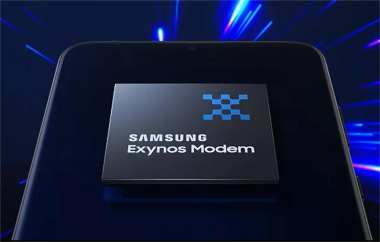
According to South Korean media, SpaceX, led by Elon Musk, is teaming up with Samsung to develop an AI-enabled 6G NTN modem aimed at directly connecting ground devices to Starlink satellite services.
The new modem will feature a dedicated AI neural processing unit (NPU) designed to predict satellite trajectories in real-time and improve signal connections. Currently, Starlink relies on ground-based small stations to maintain its links, but insiders suggest that Samsung's custom modem could transform this setup by enabling direct device-to-satellite communication. If successful, this innovation could reshape global telecom architecture and accelerate SpaceX's 6G non-terrestrial network (NTN) ambitions.
SpaceX has also invested $1.7 billion to acquire 50 MHz of wireless spectrum and global mobile satellite service (MSS) frequencies to support its 6G NTN rollout. Samsung executives highlight that the new Exynos modem achieves a 55x improvement in beam recognition and a 42x boost in channel prediction performance, enabling real-time adjustments that current modems struggle to deliver.
Samsung's Exynos Mobile 5000 series modems are reportedly ready for commercial deployment in NR NTN networks. Real-time long-distance adjustment is a highly energy-intensive process, so how 6G NTN smartphones handle this technology will be closely watched. Beyond mobile devices, the 6G NTN modem could also find applications in vehicles and robotics, where energy efficiency demands are comparatively lower.
Industry analysts see this collaboration as a sign that Samsung is expanding its semiconductor ambitions beyond smartphones and memory. Its previous work with TSMC on Tesla's A15 chips further underscores its growing influence in the semiconductor space.




